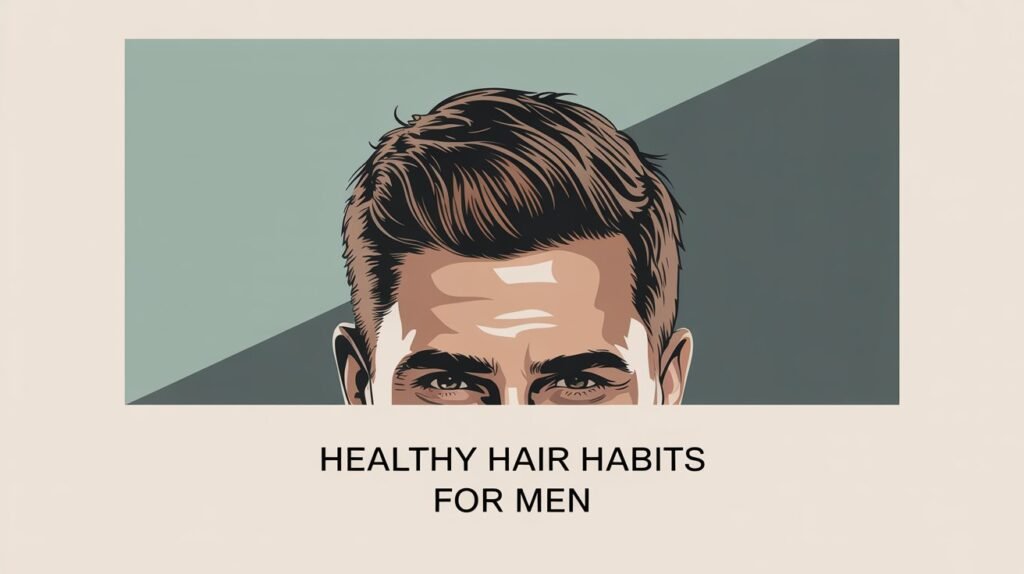Achieving healthy, vibrant hair is a key goal for many men, but it often feels out of reach. Adopting a few strategic habits and paying attention to daily choices can make a significant difference in the health and appearance of your hair. A foundation of proper scalp care, innovative styling, and nutrition will set you up for healthier hair now and in the future. If you’re considering targeted support, exploring hair supplements for men can be one way to boost your hair as part of your regimen.
Healthy hair doesn’t have to be complicated or time-consuming—consistency and quality choices matter more than drastic measures. Men of any age and hair type can benefit from gentle care, balanced nutrition, hydration, and an informed approach to common issues. Beyond topical products, overall wellness and habits play a major role in the look and strength of hair.
Prioritize Scalp Care
The condition of your scalp forms the basis for all healthy hair growth. Regular scalp massage feels relaxing and physically stimulates blood circulation, feeding hair follicles essential nutrients. Incorporating gentle, natural oils such as jojoba or rosemary can help keep your scalp balanced, minimize dryness, and fend off dandruff and irritation. Optimal scalp health reduces the risk of flaking and keeps hair stronger at the root. According to Woman & Home, maintaining a clean, nourished scalp is one of the most effective ways to encourage robust hair growth.
Maintain a Nutrient-Rich Diet
Your dietary choices heavily influence your hair’s strength, texture, and volume. A lack of essential nutrients can leave hair weak and more prone to thinning or breakage. Critical nutrients to support hair include:
- Protein: The main building block of hair; found in foods like eggs, lean meats, beans, and nuts.
- Iron: Supports proper oxygen delivery to hair follicles; enjoy dark leafy greens, lentils, and red meat.
- Biotin and zinc promote strong, resilient hair. Whole grains, eggs, and seeds are good sources.
- Omega-3 Fatty Acids: Help moisturize scalp and hair; eat fatty fish like salmon, trout, and mackerel.
Research shows that even mild deficiencies in these nutrients can affect hair health. Read this analysis from Who What Wear for more information on how nutrition can influence hair wellness.
Adopt Gentle Styling Techniques
Excessive styling or harsh grooming habits are among the most common causes of weakened or thinning hair in men. To protect your hair, avoid tight ponytails or braids that pull at the scalp, which can cause breakage or traction alopecia. For anyone seeking to add length or volume, whether through natural growth or cosmetic additions like tape in hair extensions, minimizing tension on the scalp is paramount. Minimize your reliance on high-heat tools and always use a heat protectant spray when you do. Embrace natural hair patterns whenever possible, and select hairstyles that work with your texture for less tension and lower damage risk.
Schedule Regular Trims
Getting consistent trims every 8 to 12 weeks keeps the ends of your hair neat, prevents split ends from creeping higher up the shaft, and helps hair look fuller and more vibrant. Regular trims not only tidy your style but also clear away dry or damaged ends that can make hair appear dull and lifeless. For many men, trimming is a low-effort way to maintain hair health year-round.
Stay Hydrated
Hydration is frequently overlooked, but it’s fundamental to how hair feels and behaves. Without enough water, your scalp and hair are more likely to become dry, brittle, and break easily. Men should aim for at least eight 8-ounce glasses of water per day, more when actively sweating, to maintain proper internal hydration and keep hair resilient from within. Medical News Today notes that staying well-hydrated is essential for strong, shiny hair.
Manage Stress Levels
Chronic stress causes more harm to hair than most men realize. Elevated stress hormones can trigger or exacerbate conditions like telogen effluvium, in which significant amounts of hair enter the shedding phase simultaneously. Incorporating daily stress-relief practices—such as meditation, deep breathing, regular physical activity, or mindful hobbies—can improve one’s well-being and translate into better hair retention and growth over time.
Seek Professional Consultation
Professional input is crucial if you notice increased hair shedding, visible bald patches, persistent scalp discomfort, or sudden clumps of hair falling out. Dermatologists and trichologists can identify medical or hormonal causes of hair loss, conduct assessments, and recommend topical treatments, prescription medications, or lifestyle adjustments. Early professional advice often prevents minor issues from escalating into permanent concerns.
Establish a Consistent Hair Care Routine
Consistency is one of the most important—and underestimated—keys to maintaining hair health. Stick to a routine that includes gentle cleansing with sulfate-free shampoos, regular conditioning, and the occasional deep treatment or scalp mask. Avoid the temptation to overwash, as stripping away too much oil can leave hair directionless and dry. When you make healthy hair care a regular part of your schedule, you’ll notice positive changes in both scalp and hair condition.
These science-backed habits form the cornerstone of maintaining healthier, stronger hair over time. Consistency is key—establishing daily routines that include gentle cleansing, scalp care, and using suitable products helps preserve natural strength and shine. Equally important is proper nutrition, as vitamins, minerals, and protein-rich foods fuel healthy hair growth from within. Managing stress, staying hydrated, and protecting hair from heat or harsh styling also play vital roles in long-term hair wellness. Seeking professional advice ensures tailored solutions for specific concerns, from thinning to scalp irritation. Combining these simple yet effective practices, every man can confidently nurture his hair’s health, resilience, and appearance for years.
Want more to read? Visit dDooks.


